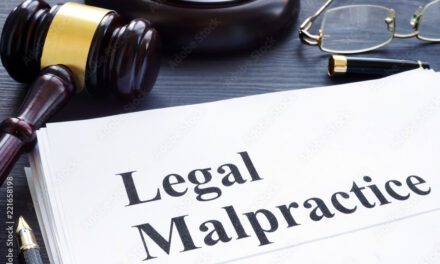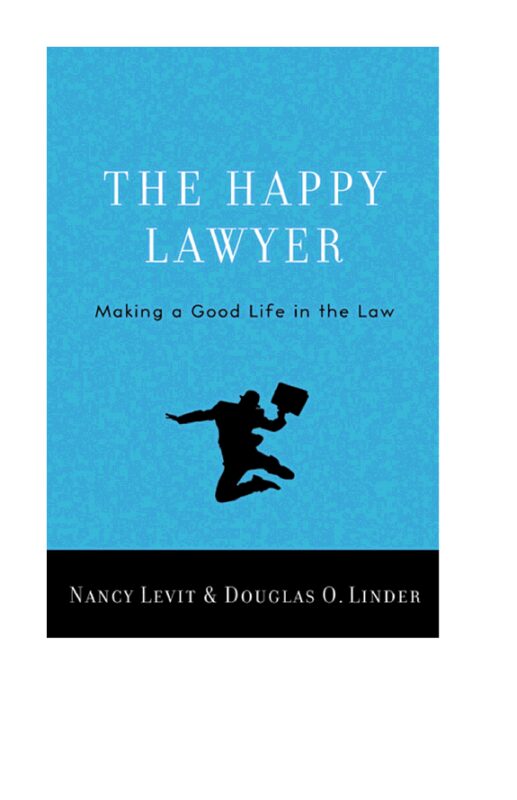Lawyers Being Unhappy: Some Components of Causation
What I am writing about here is mostly what can be done about the various states of caused-unhappiness (other than physically caused), as opposed to inherent unhappiness. (Our Authors recognize this distinction: one might have to do with child abuse (caused unhappiness) while the other might have to do with genetics),
It must be kept in mind that I am not suggesting premises-to-conclusion (P-to-C) reasoning. It may appear as though I am making suggestions about reasoning but they almost always have to do with recognizing what it so and what is not, as opposed to how to deal with a situation.
Usually I do not suggest that this type of reasoning, P-to-C, contain real solutions to unhappiness. I grant that this mode of thinking is built deeply into the way lawyers think. In fact, it is also characteristic of much of Western thinking about mental and emotional matters. (Of course, happiness is exactly one of these.)
Here is a list of some of the modes of “thought” I think are crucial. I believe that the spirit of “my” approach is inconsistent with that of much of thought of some components of Western thought on these matters, the sources of the thinking of Our Authors, and the Authors themselves:
- Intuition
- Pondering
- Mulling
- Waiting Reflection
- Visions (coming from inside, no outside)
- Focus on the hidden
- Focus on the obvious which does not seem obvious or significant–Not Shurlock Holmes. Let it jump out at you.
- Experimental thinking and tiny steps at first.
- Revelations following by pondering etc.
- Hypos pondered, etc.
- Pondering pictures–photos, paintings, etc. (This is not a step for everyone.)
- Guess work.
Trying to deal with unhappiness by reflecting on it, but exercising one’s will, by rethinking ones identity and or essence, by drifting in an important direction, requires mental involvement of the sort just listed. However, it often cannot be done alone. Avoiding complete aloneness does not require having one person as a mentor, sponsor, or something of the sort. Several people, probably not in groups, are needed.
Incivility
- Being faced with it?
- Doing it yourself?
Giving up incivility is easier than it looks. It involves reconciling one’s self with there being incivility around one:
- Witnessing it?
- Being subjected to it?
Both of these require some degree of acceptance. It happens. The litigation part of the profession has a poor reputation for this. It is actually more rare than many say it is. The reduction of incivility and the reduction of having any reaction to it, is easily findable, though a little harder to do for many of us. The formula is simple, never be uncivil yourself. Make it a habit. Just don’t let it happen. Your being like this is much more effective to putting a stop to the “atmosphere” around you than you might think. It is “infectious,” at least 8O% of the time. It won’t always “infect” the lawyer who is being uncivil, but it will affect everyone else. By the way, there can be incivility in may areas of the law, e.g., in negotiations. Courtesy can grow at enormous speed in areas like that. Quiet, restrained, but clear objections, which are not on their surface nasty, can frequently work miracles–then again, not always. Civility is not backing down, even if assholes think it is; they will learn. Like most happiness problems, this is not completely a “lawyer problem.” It can be found in many–most–walks of life.
Feeling Unloved.
This is extremely difficult. Often the impression/feeling of being unloved is true. If so, one of your principal sources of unhappiness is yourself. Your behavior must change. If you are feeling unloved, but you are loveable, find a new group of friends and intimates. This is not a “lawyer problem.”
Believing that the practice is not, across the board, to any extent or in any way, a Noble Profession, i.e., has no nobility in it.
Starting solution: read books about noble lawyers, e.g., those who have defend the downtrodden.
Next: try getting stories from lawyers who actually believe that it is, often is, or can be, Look for older people who have been lawyers for a long time. Avoid bullshitters. Avoid people who are engaging in self-deception. Next: read the Model Rules several times. Keep it next to your bedside. Focus on the introductory paragraphs and the Comments. Next: read stories of genuine noble conduct in other areas of life. Read biographies of lawyers most regard as noble. Read books or articles about Supreme Court justices you regard as heroes. (Heroes are automatically noble. Even the opposite of your hero can be noble. If you love Brennan, Scalia can be a hero in some ways.)
Believing that You Make No Difference to Any Extent as to Anything You Do as a Lawyer.
This is almost certainly a false proposition. Make a list. . . Everything you can think of. Don’t bullshit yourself. Keep the list handy. At the same time, don’t trust the list. Try this and then that until you hit one something meaningful Keep added to the list. Consider getting out of the profession, or change your focuses. First, prepare a list of what you think is important, meaningful, and available. Second, wait a while. If nothing happens, the chances are that your problem is not a lawyer only problem. Come to grips with that, and look for anything in your life where you have made a difference. Make a list. If nothing comes up, you need to go into some sort of psychological therapy.
You “See” Over and Over Again That Your Career Will Not Rise to a Reasonable Extent.
- Two “problem times”:
- Very young in the profession
- Middle age in the profession
- Very different questions.
- The first involves usually irrational pessimism.
- The second involves years of discouragement
- You’re one of the young: ponder both irrationality in this context and the extent of you pessimism.
- You’re one of the the middle aged: There’s time left. Drift toward it.
You Look Back Over Your Career and Say to Yourself, I Never Amounted to a Damn Thing.
- I have no idea how to handle this.
There are Lawyer Personalities that Affects Career Satisfaction, And I Don’t Have One.
There are lawyer personalities. Many areas of litigation require something stretching from toleration though, to interest, to enjoyment, to love. Probate work is not like that, as are all sorts of preventative law practice. This idea that you can’t fit in anywhere is almost certainly false. Go back up to Quinn’s list of ways to “think” and try some of them.
The “Rat Race” Can Make a Lawyer miserable.
To busy with activities you don’t like and don’t see any good in them–no matter how many different kinds there are–that you feel completely dominated, not by a person but by the demands of what you have chosen, or are putting up with.
- Slow down.
- Start refusing to do things.
- Start evading demands and requests.
- You don’t have to do Junior League.
- You don’t have to be the troop leader for the Boy Scouts.
- You don’t have to be a deacon in the church.
- You don’t have to serve on a committee in the firm.
- And the list goes on.
- The start is “Who am I really?”
- P-to-C reasoning will not do this.
- If there is going to be reasoning that is central at all, it will be C-to-P reasoning.
Feelings of Helplessness, Being Radically Dominated, or Feeling Submissive, and Seeing One’s Self as Weak in Connection with Work, Causes Unhappiness–and not just a little.
- The chances are that if you feel these ways at work, you also feel them in the rest of life.
- There is a first question: Why has this happened?
- Who am I really?
- How have I let this happen to me?
- Why?
- What has my history been with this picture?
- Plainly, these are not legal career questions only.
- This concatenation of perceptions and belief are much more general.
- If you cannot make enough progress with these to begin the repair and cast out the perception, then you need therapy
Not Trying to Get Some Control, or Trying and Consistently Failing (or Failing Most of the Time).
Things have been bad, bad, bad for a long time. I don’t see how to Make Anything Better.
The Lack of Meaningful Relationships Are a Source of Unhappiness for Lawyers.
- As they are for everybody else.
- The maxim is undoubtedly true, but it is vastly more complex, and if someone goes around,willy nilly, forming meaningful relationships, there will be a diminution in happiness.
- But picking the wrong ones can be a source of unhappiness, too.
- Having too many intimate relationships at the same time may lead to misery.
- Having relationships in the wrong place and at the wrong time can lead to disaster and therefore unhappiness.
To the extent that a lawyer cannot “connect,” there will be unhappiness. See the last discussion, I think.
Everybody Needs Somebody Sometime. If it is not pulled off, unhappiness will result. See the discussion before last.
Missing the Flow Results in Unhappiness. I will return to this topic later.
Paying no or Little Attention to What Can be Learned from the Happiness (or Unhappiness) of Others.
- Studying those around you for their happiness, Its Origins, and Its Support Devices, Works Well to Overcome This Source of Unhappiness.
- See the next chapter for further discussion.
No, or little, knowledge of one’s self. For unhappy people, there is often no or little knowledge of themselves.
- Succeeding at overcoming this is not a necessary condition for happiness, being happier, or some degree of happiness acquisition.
- Making some way helps.
- The trying and moving along the way are more important than completing the journal, which probably cannot be done anyway.
- For more on this, see the next chapter.
There will be more on this general topic in the next chapter.





Recent Comments